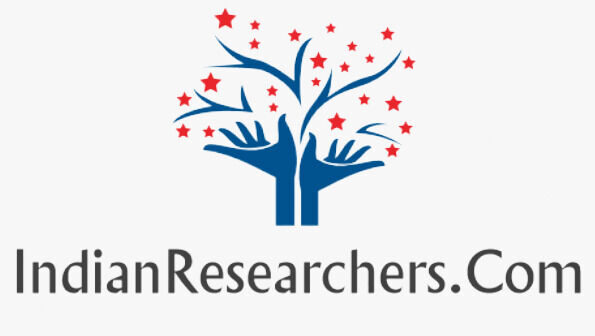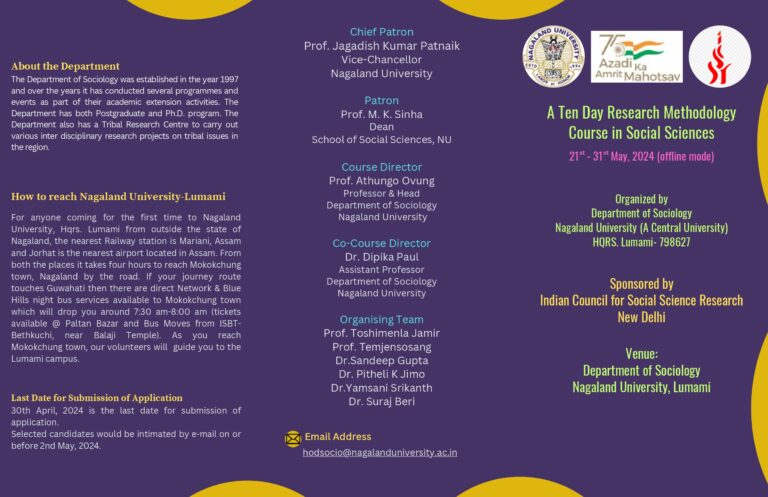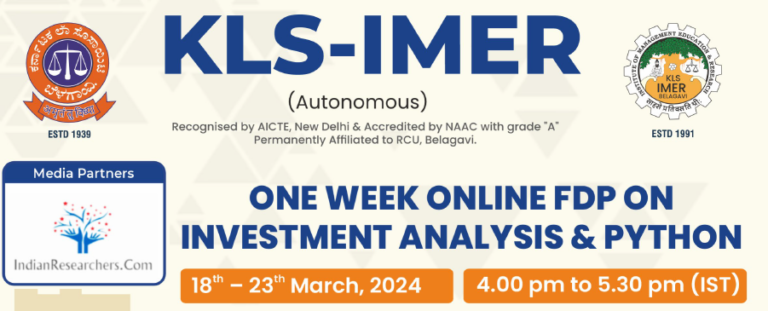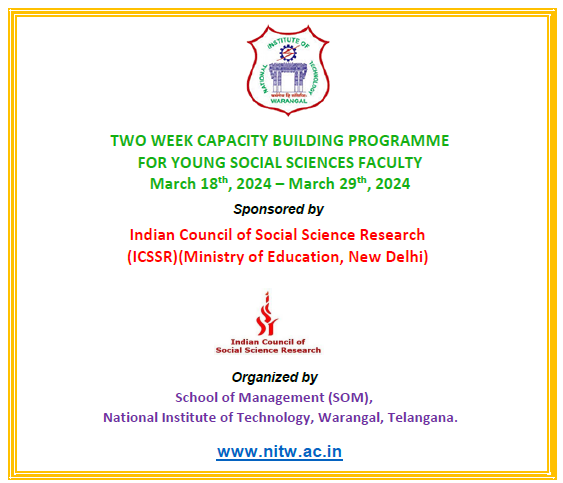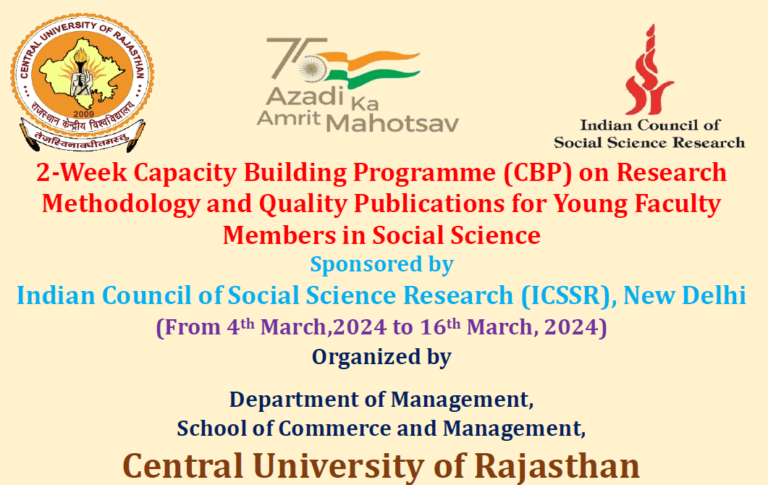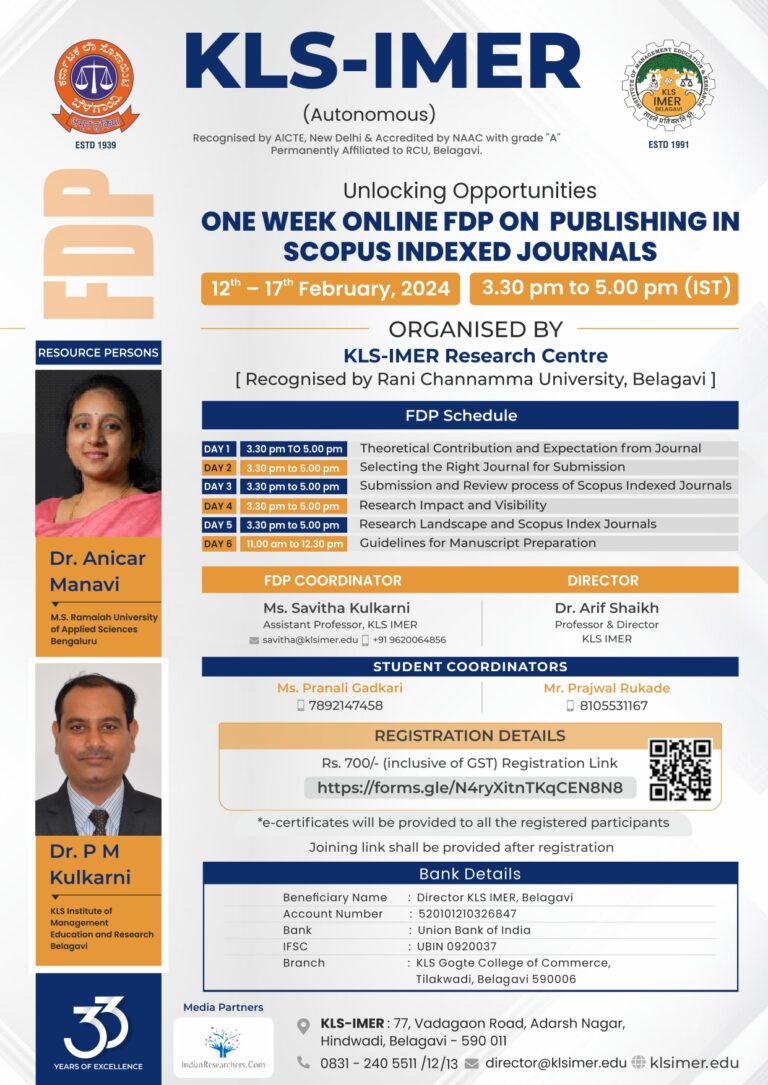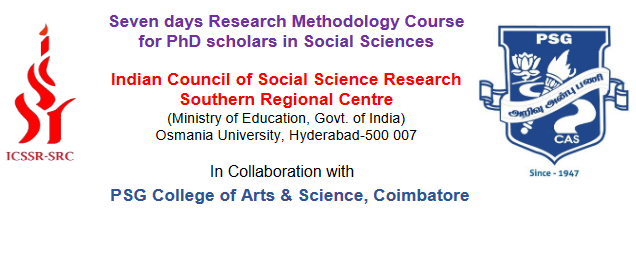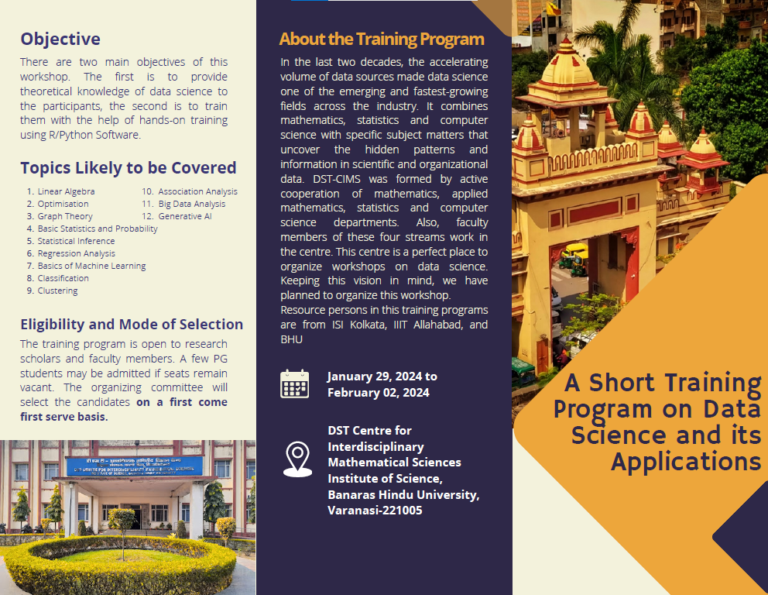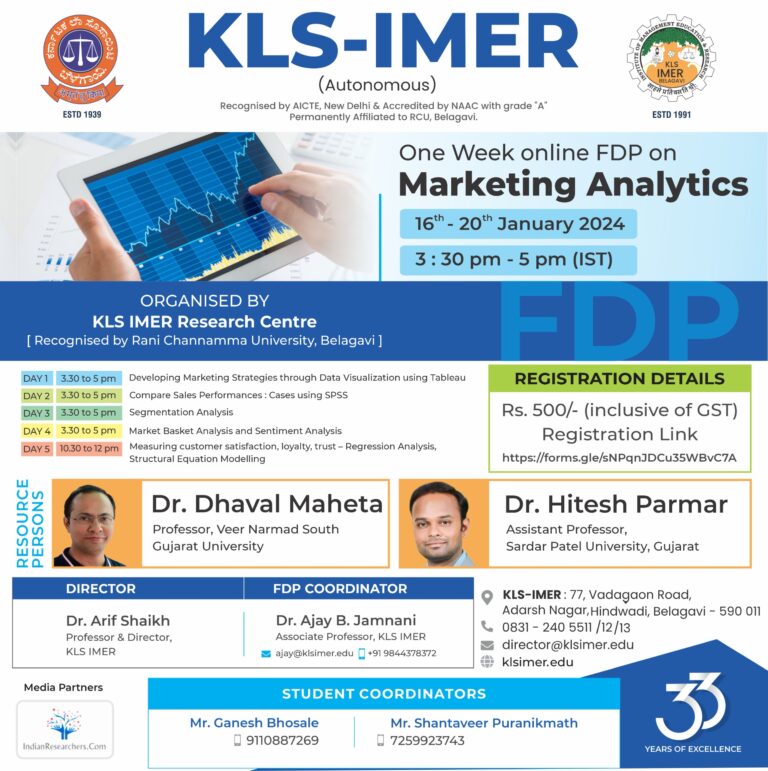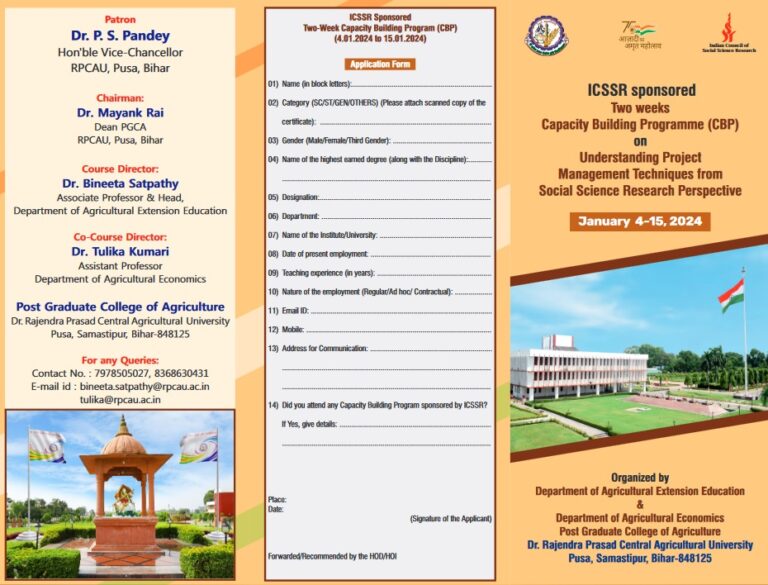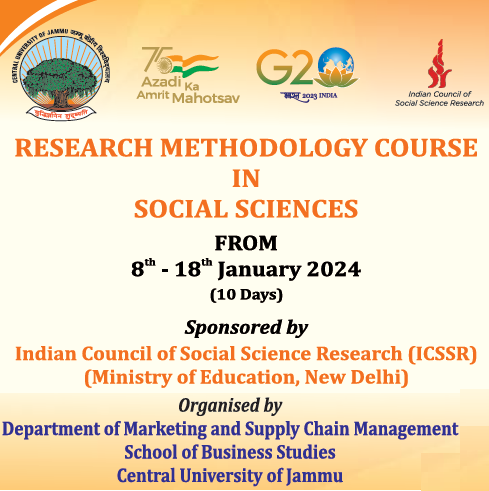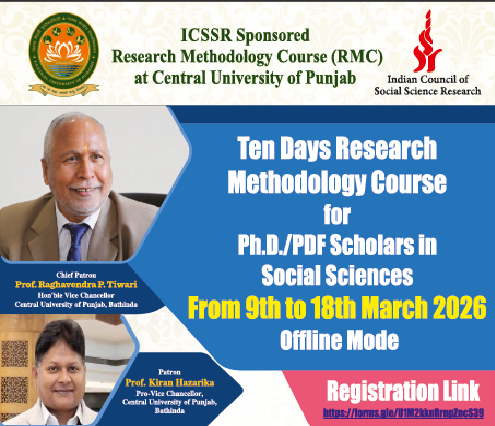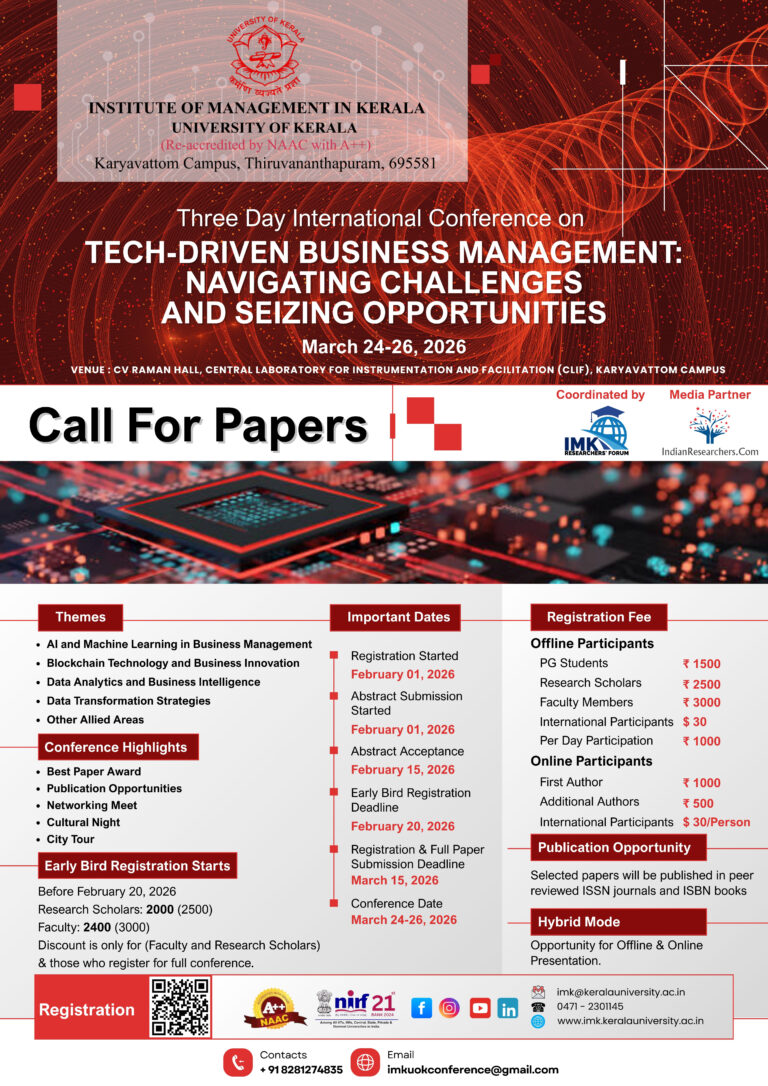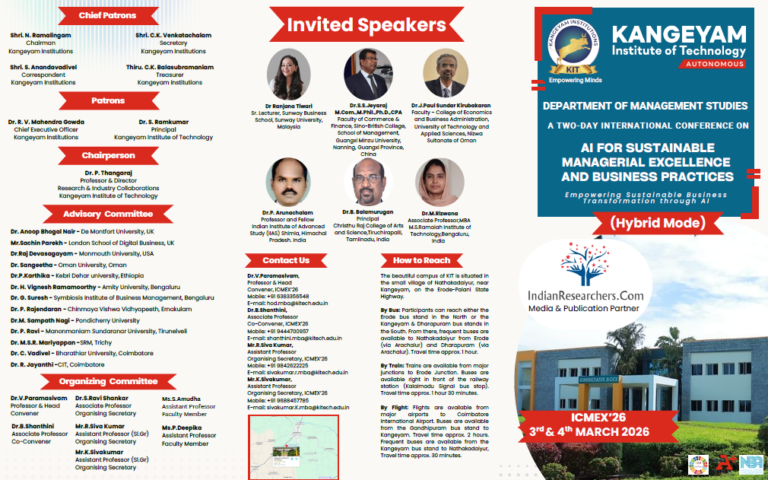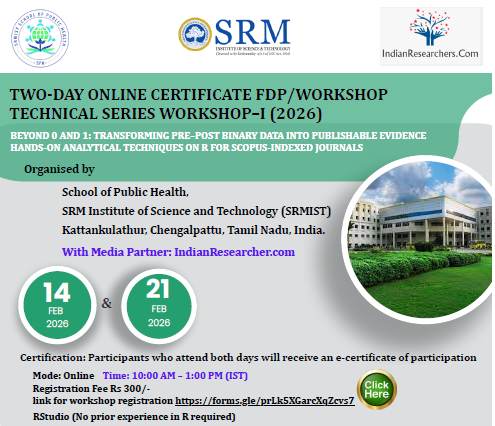The Department of Sociology at Nagaland University (A Central University) is offering a Ten-Day Research Methodology Course...
FDPs
About KLS IMER Karnatak Law Society’s Institute Of Management Education and Research established in 1991, has been...
About the Workshop Preamble: Teaching and research go hand in hand and quality of research that a...
The Indian Council of Social Science Research (ICSSR), New Delhi, is sponsoring a 2-week Capacity Building Programme...
About KLS IMER Karnatak Law Society’s Institute Of Management Education and Research established in 1991, has been...
The Southern Regional Centre – ICSSR announces Seven Days Research Methodology Course for PhD students in Social...
About the Training Program In the last two decades, the accelerating volume of data sources made data...
One Week Online Faculty Development Program Focused on Marketing Analytics, Organized by KLS IMER Research Centre from...
ICSSR sponsored Two weeks Capacity Building Programme (CBP) on Understanding Project Management Techniques from Social Science Research...
ABOUT THE RESEARCH METHODOLOGY COURSE Research is considered the backbone of higher education institutions with a focus...
